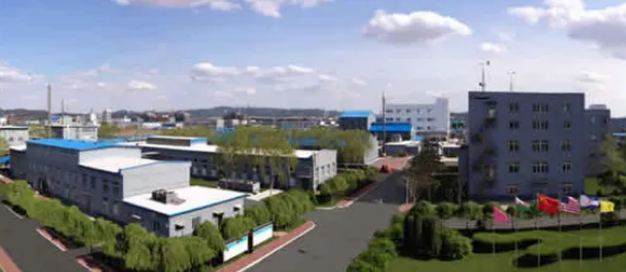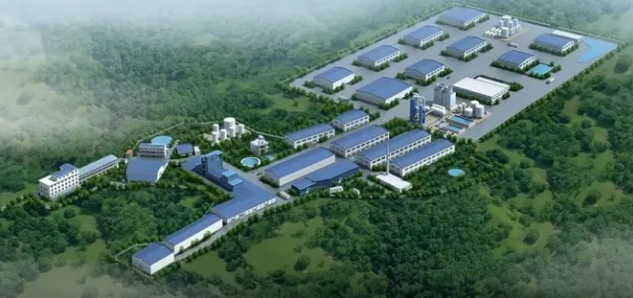The direction of chemical intelligent manufacturing | artificial intelligence is not reliable
The architecture of "intelligent manufacturing" in the petrochemical industry has long been determined, that is, to realize knowledge automation and intelligence at the three levels of process control, production management, and operation management, corresponding to the process control system (PCS), production execution system (MES), and enterprise resource planning (ERP).
Process control system (PCS) : An automatic control system, represented by DCS and PLC, including advanced process control APC, that characterizes the parameters of the production process as controlled quantities close to a given value or kept within a given range.
Enterprise resource planning (ERP) is an effective and comprehensive planning and management of enterprise resources, including product ordering, raw material procurement, distribution, sales, accounting and a series of business flows, represented by SAP.
Production process execution management system (MES) : as the interface between DCS and MES, to achieve the integration of production performance management and operation data, the functional modules include short-term production planning, job scheduling and scheduling (APS), maintenance management, technical information management, online real-time optimization RTO, product quality management LIMS.
No matter at what level, to let the computer to solve the problem, you need to digitize the problem and abstract it into a mathematical model, so the core of intelligence is five :" digitalization, visualization, modeling, automation, integration." Only by digitizing experience and information through detection technology, finding rules through data visualization analysis, and then transforming the rules into mathematical models, and then automatically solving and making decisions through computers on mathematical models, automatically transmitting decisions or conclusions to the upper or lower layers, thus achieving integration. This complete process is knowledge automation, which frees people from repetitive work and focuses on innovative and high value-added activities, obviously it has become more demanding for talents.

It's a long way to go
The monitoring and pre-maintenance of dynamic equipment is one of the few feasible applications of big data technology in the chemical industry. It needs to develop technologies: First, new sensing technology: vibration, sound, image, current and other signals are integrated into the monitoring model, and a key feature signal can replace dozens of weakly correlated signals. The biggest achievement of artificial intelligence technology based on big data is the processing and recognition of sound and images, and the application of these two types of signals in industry is still relatively small, and it is time to apply them. The second is signal processing methods and algorithms: how to associate signal phenomena with fault types requires the use of advanced pattern recognition technology.
But even so, there is still a great difficulty in copying similar industries, and it cannot be simply transplanted.
One is because of the input and output ratio of various intelligent manufacturing systems. A major investment in intelligent manufacturing is software at all levels, a feature of software investment is that it is almost irrelevant to the size of the device, the price of a set of software will not change with the size of the device, but the benefits generated are basically proportional to the size of the device, so it seems that the investment income of the software system also exists almost linear scale effects. Smes must use low-cost software systems suitable for smes. Second, in addition to PCS direct and pure equipment communication, ERP and MES have more interfaces with people, and involve the management culture of the enterprise. The application of the system involves the change of management and culture, or the system is customized according to the management culture of the enterprise.

Postscript: The right way is under foot, not in the sky
Although the concept of artificial intelligence is very hot right now, with countless stories and investments, the impact on the chemical industry (and by extension, the process industry) can be considered largely negligible. To talk about intelligent manufacturing in the chemical industry, it is not to rely on artificial intelligence based on big data, but to rely on the digitalization and automation of knowledge and experience. The framework of "intelligent manufacturing" in the petrochemical industry has long been determined, which is to realize knowledge automation and intelligence through PCS, MES and ERP at the three levels of process control, production management and operation management, which is a reliable way.
- ABB
- General Electric
- EMERSON
- Honeywell
- HIMA
- ALSTOM
- Rolls-Royce
- MOTOROLA
- Rockwell
- Siemens
- Woodward
- YOKOGAWA
- FOXBORO
- KOLLMORGEN
- MOOG
- KB
- YAMAHA
- BENDER
- TEKTRONIX
- Westinghouse
- AMAT
- AB
- XYCOM
- Yaskawa
- B&R
- Schneider
- Kongsberg
- NI
- WATLOW
- ProSoft
- SEW
- ADVANCED
- Reliance
- TRICONEX
- METSO
- MAN
- Advantest
- STUDER
- KONGSBERG
- DANAHER MOTION
- Bently
- Galil
- EATON
- MOLEX
- DEIF
- B&W
- ZYGO
- Aerotech
- DANFOSS
- Beijer
- Moxa
- Rexroth
- Johnson
- WAGO
- TOSHIBA
- BMCM
- SMC
- HITACHI
- HIRSCHMANN
- Application field
- XP POWER
- CTI
- TRICON
- STOBER
- Thinklogical
- Horner Automation
- Meggitt
- Fanuc
- Baldor
- SHINKAWA
- Other Brands




































































































































